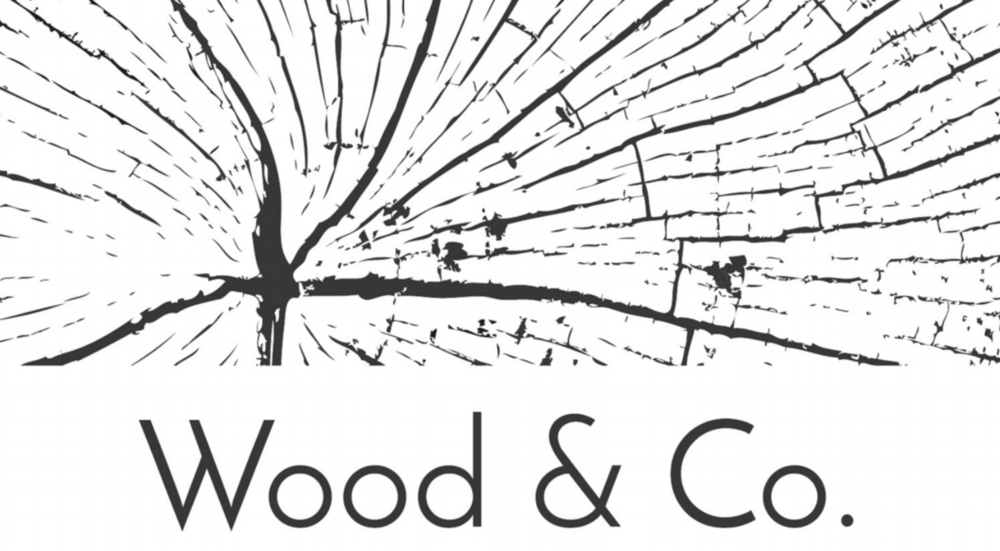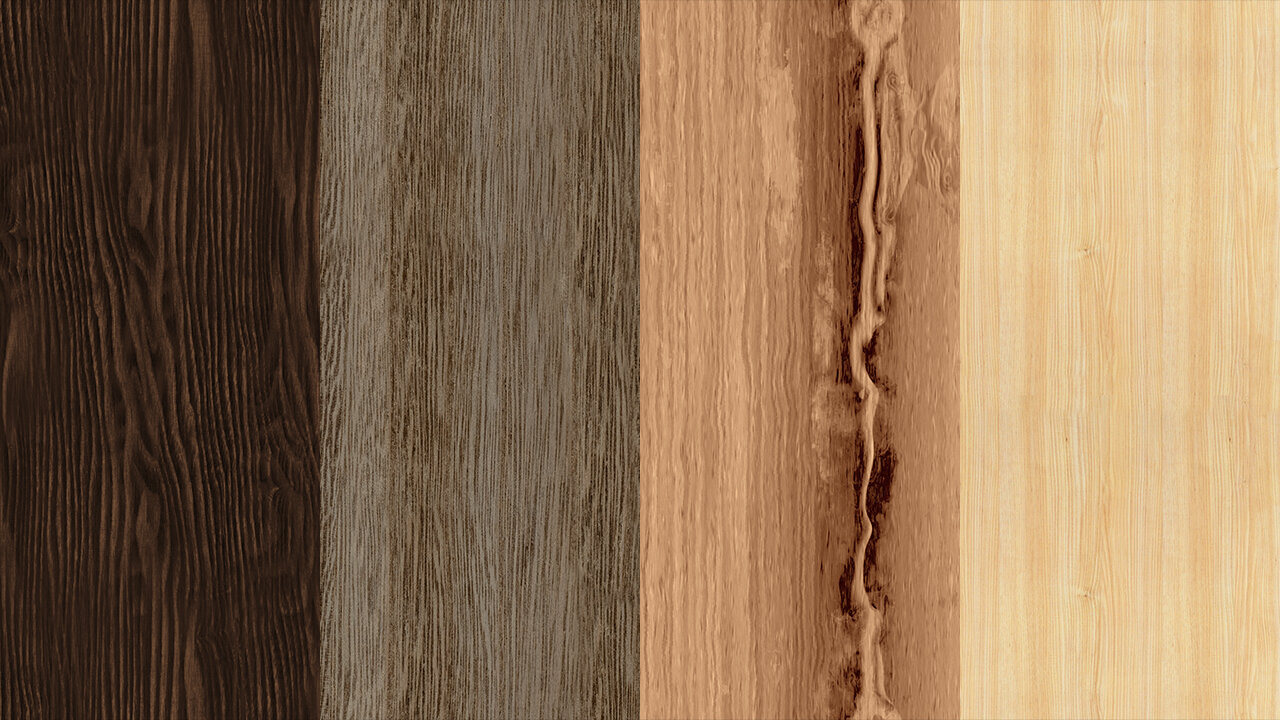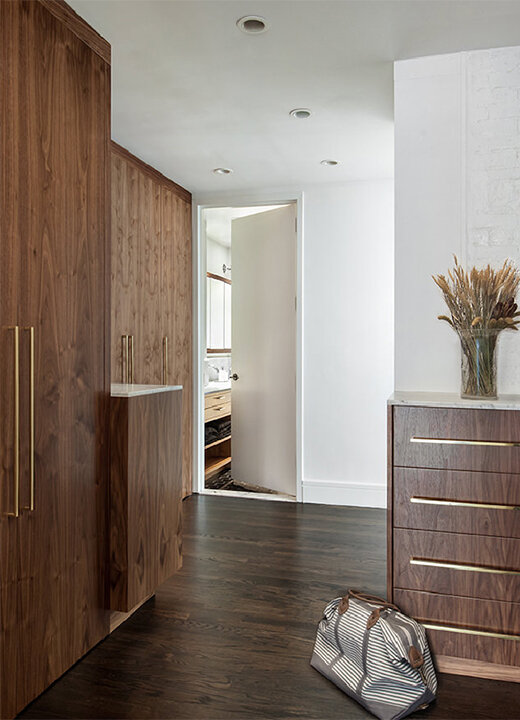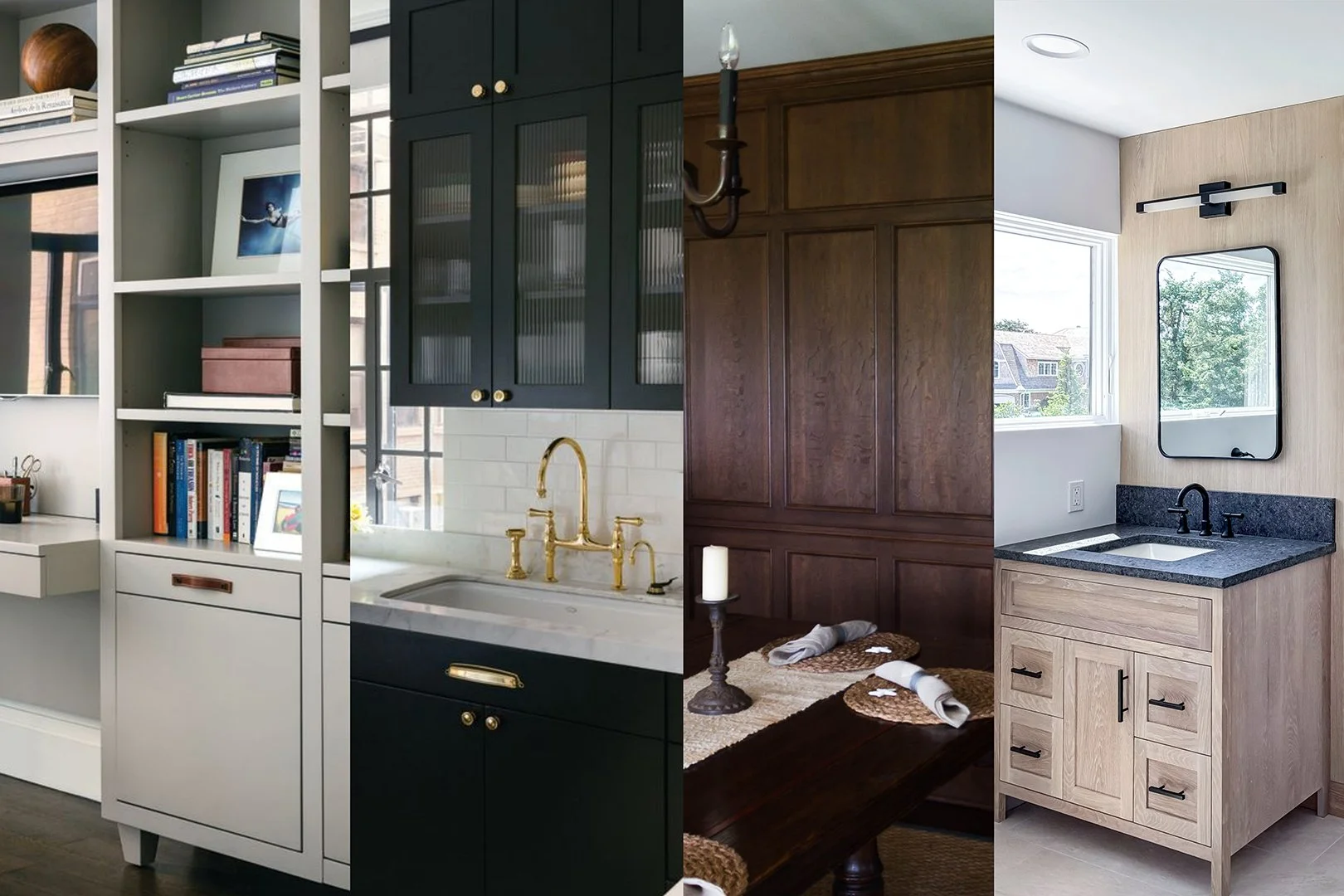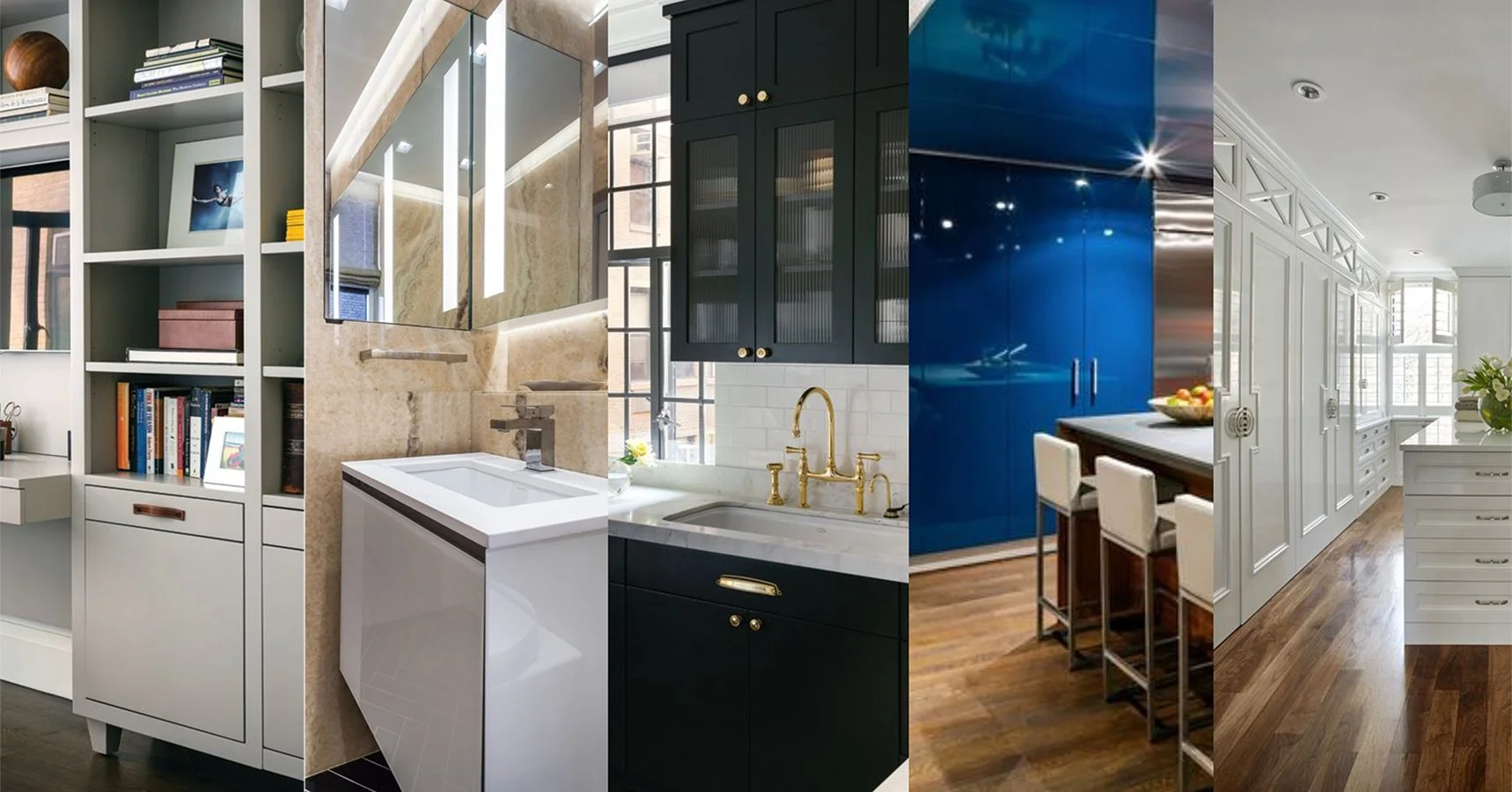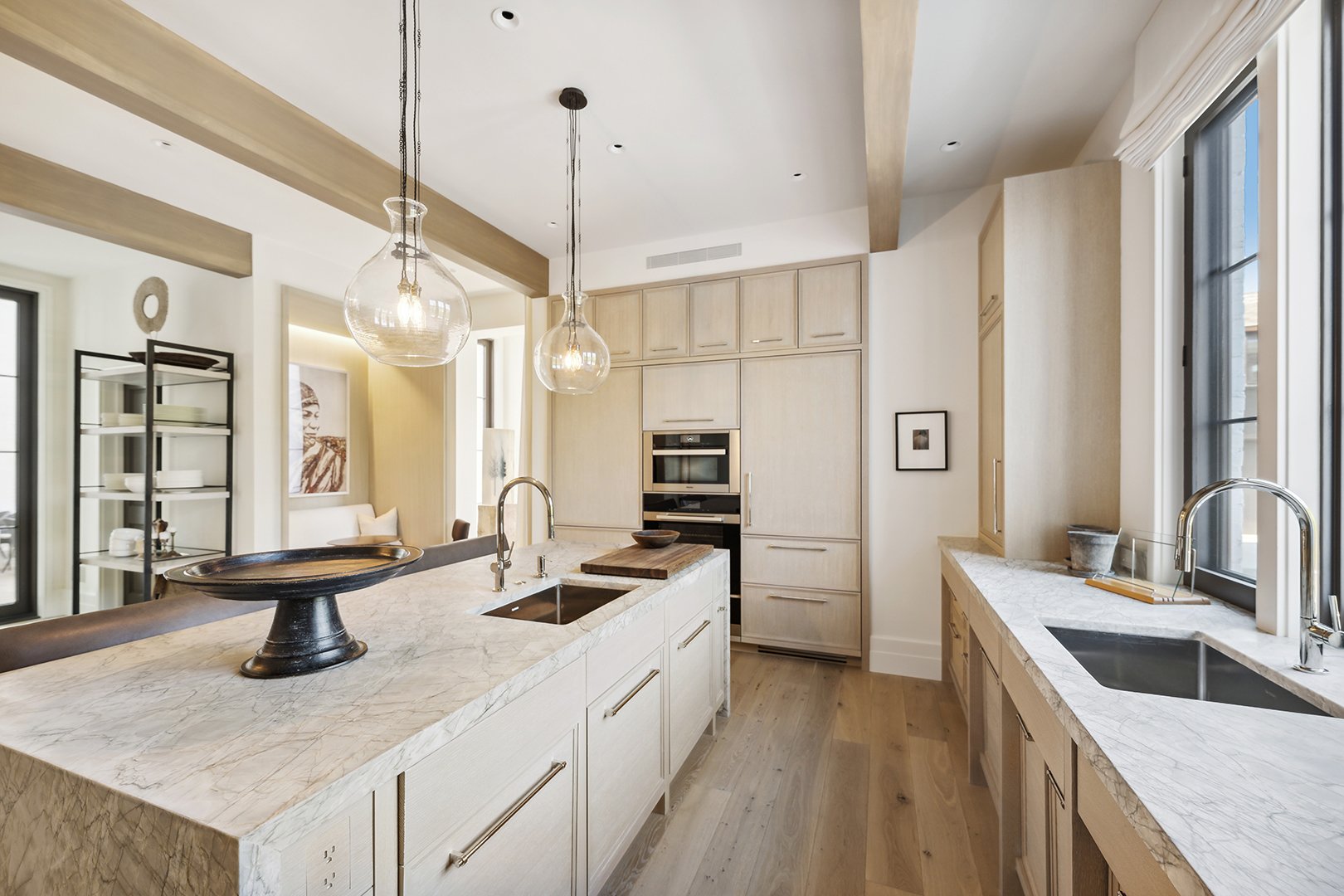Cabinets are some of the most ubiquitous parts of our homes. They’re found in our kitchens, bathrooms, living rooms, bedrooms, and many more. They range from small free-standing dressers or fully kitted out custom built-ins. Custom cabinets come in all sorts of materials such as wood, laminates, and even stainless steel. However even as technology advances and styles change, wood remains as a tried-and-true material for most of our custom cabinetry needs.
When it comes to balancing beauty and functionality in cabinetry, nothing comes close to the array of options offered by different species of wood. When a friend or family member brings up the topic of cabinets, one can’t help but picture the natural allure of wood grain of stained cabinetry or the sleek and crisp finish of painted wood cabinets. Each and every different species of wood comes with their own distinct characteristics.
Today, we’ll dive into the most popular types of wood for custom cabinets. Broadly speaking, they fall into two general categories: wood best for staining and wood best for painting. We will go over the most popular types for each and what they each bring to the table.
Plain sliced white oak kitchen cabinets by Wood & Co.
Which Wood is Best for Stained Cabinets?
Stained wood cabinetry has a lasting appeal that withstands the test of time and changing trends. There’s nothing quite like the natural look that you can achieve with wood. It gives any room a touch of warmth, making it a more pleasing and welcoming space to be in. And because it’s a natural material, no two wood cabinets will ever be exactly the same even if they’re made from the same species. From the slight variations in color to the unique grain patterns, each piece of wood is distinct and one-of-a-kind. Stained wood cabinets bring that natural allure into the forefront. There are many varieties and species of wood that can be used. In this article, we’ll look at some of the most commonly used types.
RED OAK
Red oak is one of two species of oak widely used in cabinet construction. It’s widely accessible, making it a very common material for both cabinets and furniture. Red oak is most known for its distinctive reddish hue, hence the name. It also features a strong and pronounced open grain and a porous surface that absorbs stains well. It’s also very durable and resistant to wear, making it a popular choice in high traffic areas like kitchens. It’s commonly seen in many traditional American homes.
WHITE OAK
The other species of oak commonly used in cabinetry works is white oak. As its name suggests, it has a much lighter color than its red cousin, usually grayish or light golden brown in hue. This makes it especially suited to contemporary styles, especially those looking for a more “hygge” and Scandinavian look. Aside from color, another major difference between red oak and white oak is the grain. White oak features a closed grain pattern, which gives it a smoother appearance.
However, just like red oak, white oak is also highly durable and resistant to moisture. Both species are relatively affordable and widely available, making it a great choice for many American homes.
Maple
Maple, notably hard maple, is another commonly used wood for crafting quality custom wood cabinets. It’s easy to work with, making it popular amongst carpenters, cabinet makers, and other woodworkers. It has a natural light creamy color, sometimes even looking close to white. It’s also easily stained if you want something darker for your cabinets. Like other hardwoods, maple is also hardy and resilient, which is important for busy areas of the home. Maple is a popular choice because of its versatility and durability, all while still being relatively affordable.
Cherry
Cherry is softer compared to other hardwoods like oak, but it’s still highly durable. It has a distinct reddish brown hue, and is a classic look for cabinets. Over time, it darkens in color, lending itself to a more timeless and rich style. Its grain has occasional knots and pitches, creating beautiful natural patterns on your cabinetry. It’s a relatively common and widely available, but it’s considered to be more high-end and quite expensive.
Alder
Alder is a common wood species on the West Coast where it’s readily available, and therefore more affordable. However, if you live in other parts of the US, then it might set you back a bit more. It has a similar appearance to cherry, especially if you choose clear alder, which has fewer knots in its grain. Unlike cherry, alder lightens in color as it ages and exposed to sunlight. It is also relatively soft wood, making it dent easily. These characteristics mean that it’s easy to distress, making it a go-to for traditional, antique, or worn and rustic style.
Hickory
Hickory is another popular option for wood cabinetry. It lies somewhere in the middle range in terms of price, so it’s not as common as oak or maple. It’s best known for its toughness, beating out other durable species like hard maple, oak, and ash. Hickory is actually used very commonly for flooring for this reason. It’s a great option if you want your cabinets to last as long as possible. In terms of appearance, it sports a kind of two-toned appearance with highly contrasting shades of white and dark brown. It features a very unique grain pattern with distinct striations and natural streaks. This distinctive look makes for a bold choice that adds flavor and plenty of character to your cabinetry.
Walnut
Walnut is considered a luxury wood, not as readily available as some other species in this article. It’s a beautiful hardwood known for its subdued dark brown hue with reddish tints. Walnut comes in both lighter and darker varieties. Depending on which you choose, you can emphasize the material’s natural variation in color, or go for a classic and elegant dark finish. In terms of strength and durability, it’s not as hardy as some of the species in this list. It’s less durable than red oak, but more than cherry. Being a premium type of wood, the major drawback of a walnut cabinet is its cost.
Slab walnut closet doors and credenza by Wood & Co.
Which Wood is Best for Painted Cabinets?
If you prefer the look of solid colors over the natural grain of wood, you’ll want to look at what is known as paint-grade wood. These types of wood have tighter grain patterns. The tight surface provides a good base for paint, and allows the wood texture to be covered. Other wood species with open grain have a rougher look and need filler materials to achieve a nice smooth painted finish.
Poplar
Poplar is one of the more economical options for painted wood cabinets. It’s smooth and takes paint well. However, it’s also one of the softest woods used for cabinets. This means that they dent easily, and even warp if not treated properly. Another issue woodworkers have with this species is the tendency to “fuzz up” during sanding. These imperfections can be easily missed at first, but will definitely show up during the painting –affecting the quality. It’s still continues to be a popular choice, though, thanks to its affordability.
Soft Maple
Aside from natural wood finish cabinets, maple is also one of the best and most commonly used wood for painted cabinets. It comes in two varieties: soft maple and hard maple. Soft maple doesn’t refer to a specific species, but a broad group of them with similar characteristics. It’s one of more favored types used for painted cabinetry. These maples are a medium density material, closely grained, and hold paint well. It’s an economical choice, similar to Poplar, but easier to work with and more durable.
Hard Maple
Hard maple refers to a specific species known as rock maple or sugar maples. Depending on what area you live in, black maple and Florida maple are also sometimes classified in this category. These are dense and highly durable woods, able to take a beating in the kitchen setting. Like other species in this list, it’s also tightly grained, making for a smooth painted finish. Unlike the two previous options, however, hard maple is more expensive.
White lacquer inset cabinetry by Wood & Co.
Which One is For Me?
It would be a herculean task to cover all the different species of wood used in cabinetry in just this one article. However, those listed here are some of the most common ones used in the United States. Hopefully, it helps you make an informed decision when choosing the kind of wood you want in your home.
The species you decide on will ultimately depend on your preferences, budget, and specific needs. If you live in an area with high humidity, you should consider wood types less prone to warping. If you have pets or young children, you will want something hardier and more durable. When budget isn’t an issue, you can opt for more premium options such as walnut, ebony, or teak.
It’s best to be thorough in your research and work closely with your cabinet maker. That way, you can be sure that you’re choosing the right species of wood for your custom cabinet needs. Get in touch with us today and let’s schedule a consultation for your upcoming project. Wood & Co. has been designing, building, and installing custom cabinetry in The Hamptons, Long Island, and New York City for many years. Let’s work together in making your dream cabinets into a reality!
Editor Note: This post was originally published in 2021. It has been updated with additional information and edited for improvements.
